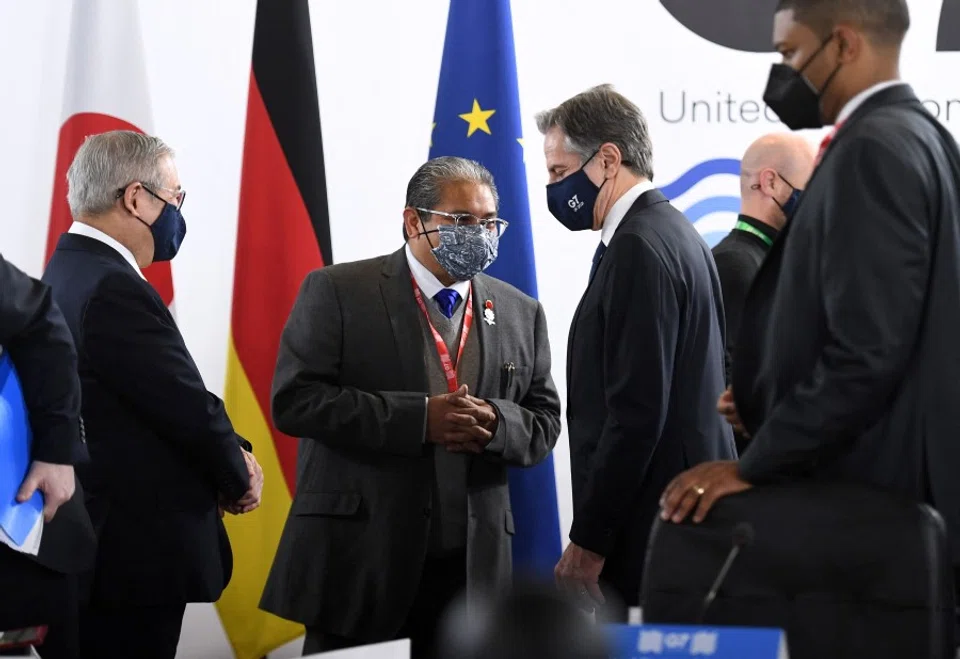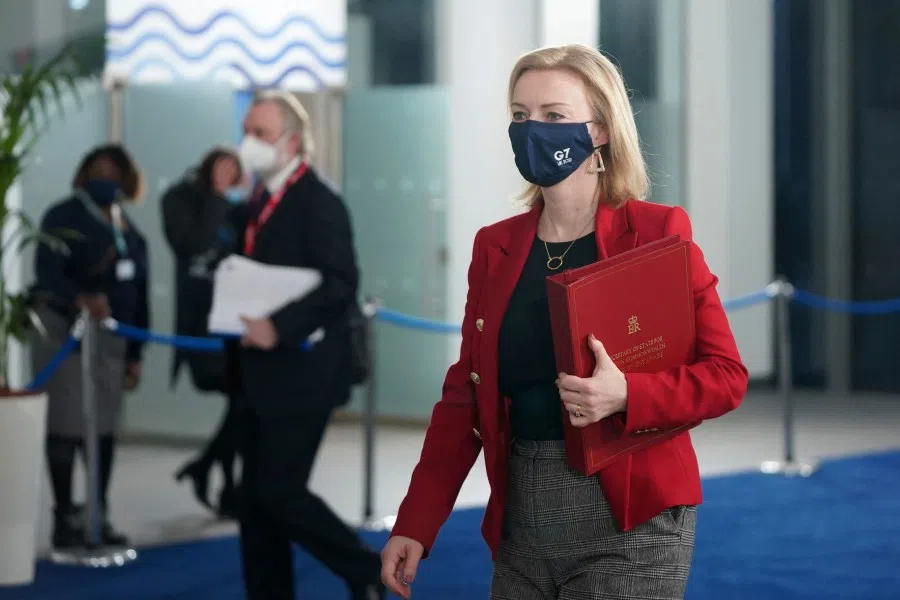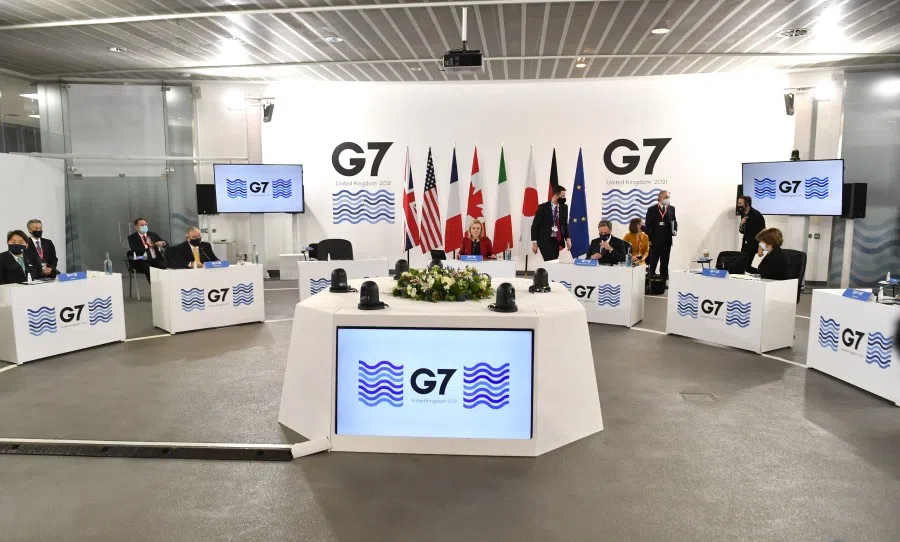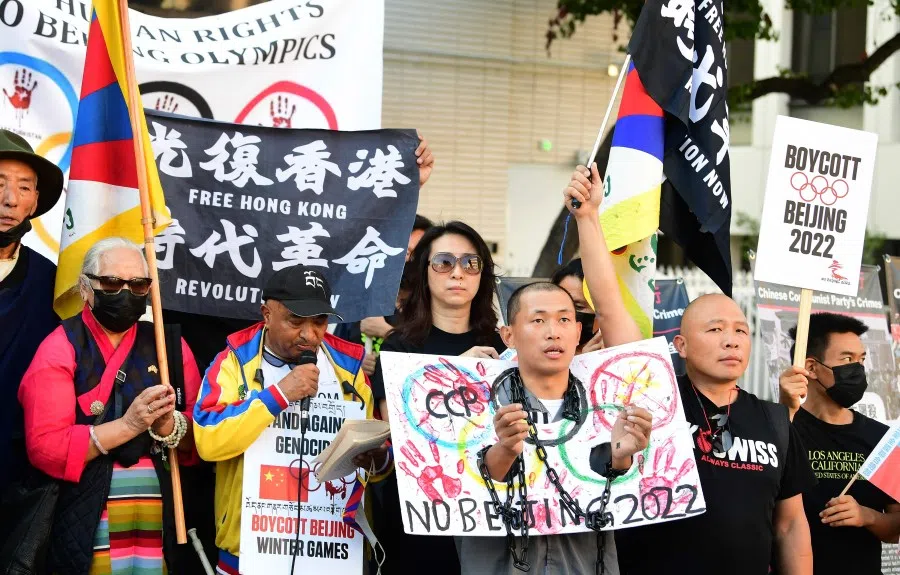ASEAN and the G7: Same bed, different dreams
ISEAS researcher Joanne Lin notes that the G7 is courting ASEAN in a bid to increase its profile in the Indo-Pacific. And while both groups share some common ground on issues such as the South China Sea and supply chains, they also diverge in significant ways on other issues such as supporting values of democracy and human rights, which stems as much from differences within ASEAN as the fact that expressing such views draws the ire of China.

The virtual 38th and 39th ASEAN Summits and Related Summits have ended, but ASEAN foreign ministers are not taking their usual year-end break. This December, unlike previous years, continues to see growing interest by major powers for engagement with ASEAN - a bloc that has positioned itself at the centre of the regional architecture.
ASEAN and the Group of 7 (G7) foreign and development ministers met for the very first time in a hybrid (face-to-face and virtual) meeting on 12 December 2021 in Liverpool in the UK. The meeting chaired by Elizabeth Truss, the foreign secretary of the UK, was aimed at tackling shared global and regional challenges, including the continuing pandemic, climate change, new cybersecurity threats, and global economic recovery.
However, a more important agenda for the G7 is to engage with other like-minded partners to find common ground and forge unified positions on geopolitical, security, and economic issues in the Indo-Pacific region. According to Foreign Secretary Truss, whose country holds the G7 presidency this year, the meeting will "encourage like-minded countries to work together from a position of strength".

The rationale behind the G7 reaching to ASEAN is fairly straightforward. While a coalition of the world's most advanced democracies and economies may be able to find some assurance in providing global leadership, its influence in the Indo-Pacific will not be effective without the support of ASEAN.
The G7 is also mindful that all its members are formal partners of ASEAN, with the UK being the newest dialogue partner since August this year. By strengthening its partnership with ASEAN, the G7 will be able to enhance its influence in Southeast Asia. In particular, the US will have another platform to bolster its leadership position in the region. There was also a suggestion to regularise this meeting to better understand the respective priorities of both groupings for future cooperation.
The inaugural meeting has inexorably drawn ASEAN into a discussion on issues that matter to the G7. These include maintaining a free and open Indo-Pacific region in accordance with the international rules-based system. The meeting also highlighted the importance of intensifying maritime cooperation including in the South China Sea, building sustainable and quality infrastructure as an alternative to China's Belt and Road Initiative, Covid-19 vaccines, and the Myanmar issue.
ASEAN would draw the line on overemphasising goals and values that may be seen as an indirect challenge to China.

But the question remains if ASEAN can serve as a like-minded partner to G7 members on these issues? Not totally, as ASEAN's outlook on such issues is cut from a different cloth.
Pragmatically, ASEAN would be glad to promote the four key areas of cooperation under the ASEAN Outlook on the Indo-Pacific, namely economic and maritime cooperation, connectivity, and sustainable development.
Strategically, ASEAN will support the G7 in reaffirming an open, inclusive and rules-based regional architecture, as well as to agree on the importance of a Code of Conduct in the South China Sea (COC) that is in accordance with international law, including the 1982 United Nations Convention on the Law of the Sea (UNCLOS). ASEAN has also welcomed G7's commitment towards vaccine supply, meeting infrastructure needs in the region, and maintaining resilient global supply chains.
However, ASEAN would draw the line on overemphasising goals and values that may be seen as an indirect challenge to China. The Chair's Statement of the G7 Foreign and Development Ministers' Meeting expressed commitment to promote and defend open societies, as well as to support democracy and human rights at home and around the world. The expression of such goals - which would typically lead to Chinese ire - was not mentioned in the Chair's Statement of the meeting with ASEAN.
It is not that ASEAN is not supportive of such values; in fact, these are principles enshrined in the ASEAN Charter. The difference is that ASEAN, a grouping with a hodgepodge of different political systems, would not tout democratic systems as a model or use human rights as a political or diplomatic tool in its engagement with external partners.

ASEAN's strength is in forging open cooperation and being at the centre of regional frameworks. ASEAN's neutrality is important amid worsening tensions between China and some members of the G7, particularly the US. But ASEAN neutrality might come under challenge. The list of countries joining the diplomatic boycott of the Beijing Olympics is growing. Australia, Canada, and the UK are now joining the US in the boycott on concerns over human rights violations by the Chinese government, while China has warned that a price would be paid. This is where ASEAN and several of the G7 members will not converge.
In addition, the Summit for Democracy hosted by US President Biden for selected countries recently will only exacerbate the growing divide between the US and China. Similarly, the proposal by British Prime Minister Boris Johnson for a coalition of a D-10 club of like-minded democracies will only cause further polarisation of the region.
Greater polarisation in the South China Sea could intensify confrontation and militarisation. This can be seen in the growing number of military drills in the South China Sea, with China deploying some of its most advanced strategic bombers in a live-fire exercise earlier this month, sending a message of deterrence to Taiwan and its Western partners. This, in turn, could propel further counter-actions, including bilateral and multilateral military exercises by the US and other Western powers, raising the risk of misperceptions and conflict or even miscalculation in the disputed area.
ASEAN is currently negotiating a COC with China, but compared to G7 members such as the US, the UK and France, ASEAN has taken a lower profile when it comes to protesting China's assertive actions in the area.
In light of these developments, can ASEAN continue to be a stabilising force in the region, or will it be torn apart by the Sino-US polarisation? The jury is still out. To enumerate the areas of ASEAN-G7 convergence is one thing; to weigh their strategic and practical consequences are quite another.
This article was first published by ISEAS - Yusof Ishak Institute as a Fulcrum commentary.





